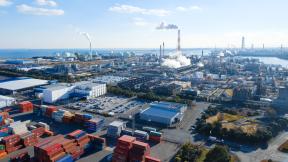Countries in Sub-Saharan Africa (SAA) grew slower over the period 1990-2018 than their peers that started from similar income levels in 1990, mainly due to slower rates of capital accumulation. They also differ from their peers in sectoral allocations: agriculture shares in value added are much lower in SSA countries compared to their peers, while agriculture shares in employment in SSA countries are similar to their peers. This implies a greater wedge – the log-difference between a sector’s share in value added and its share in employment in SSA countries than their peers. This project aims to understand why low-income SSA countries experienced slower rates of economic growth and capital accumulation, as well as uneven structural transformation compared to other low-income countries. In particular, is the sectoral reallocation process in SSA countries, and any distortions therein, partly responsible for lower rates of capital accumulation and slower aggregate growth?
The research team compile data from multiple sources spanning 81 non-SSA countries and 14 SSA countries across four broad sectors over the period 1990-2018, and analyse whether SSA countries display patterns similar to, or different from, those of non-SSA countries. The researchers start with a growth accounting exercise and explore the contributions from capital per worker and from TFP to average growth of GDP per worker. They then study structural change – the evolution of sectoral value-added shares, employment shares, and wedges over time – before developing a general equilibrium model that provides a structural framework for analysing these empirical observations. As a result of sector-neutral productivity growth, structural change impacts the endogenous selection of capitalists and workers into different sectors, resulting in sectoral productivity differences and sectoral wedges. Lastly, the team use the the calibrated model to qualitatively reproduce the key empirical patterns for both SSA and non-SSA countries. The key is that SSA countries have a higher cost for capitalists to convert their land to physical capital than non-SSA countries have.
Policy discussions in low-income countries often entail debates surrounding industrial policy and reforms that promote sectoral transitions of workers and production out of agriculture, following the paths of previously successful countries. However, low-income countries are often plagued with various distortions that prevent them from achieving sectoral allocation efficiency and optimal capital accumulation as in developed countries. It is important to identify these impediments so as to design policies that foster economic growth and efficiency. In the project's calibrated model, capitalists in SSA are relatively more confined to agriculture because it is costlier to move their resources to industry, compared to non-SSA countries. As a result, capital that would otherwise be more productive in industry is 'trapped' in agriculture.
Preliminary research points to potentially large distortions in land markets in SSA countries. Such distortions might restrict the ability of land owners to collateralise land to finance the purchase of industrial equipment. The policy implication would be that land market reforms will improve allocation efficiencies and promote growth.






















































